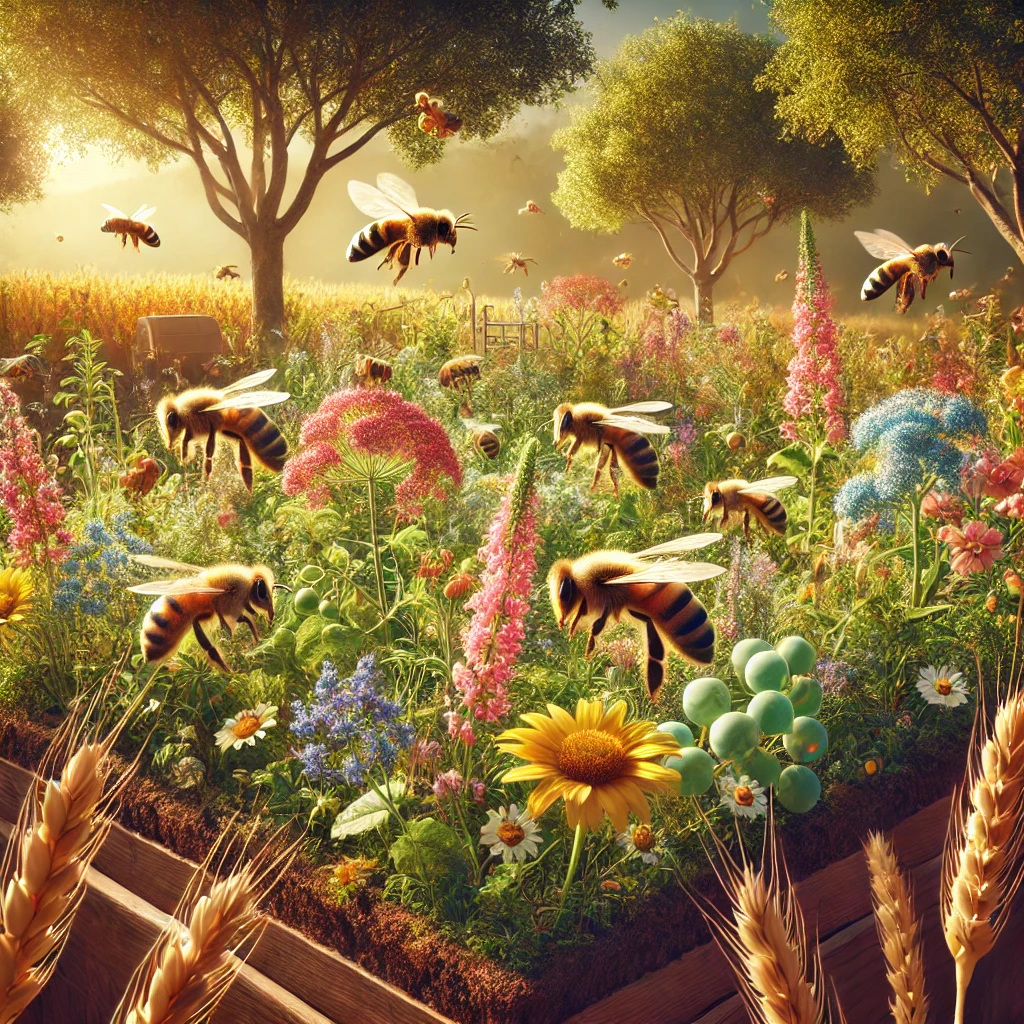Bees are vital to maintaining healthy ecosystems and supporting climate protection efforts. Often referred to as “pollination powerhouses,” bees contribute significantly to biodiversity and play a crucial role in sustaining the world’s food supply. Understanding the role of bees in climate protection is key to recognizing why conserving these tiny but mighty insects is essential.
1. Bees as Essential Pollinators
Bees are among the most effective pollinators on the planet. As they collect nectar and pollen, they fertilize plants, enabling the growth of fruits, vegetables, nuts, and countless flowering plants. Without bees, the pollination process for many crops would slow, impacting food production and reducing the biodiversity that keeps ecosystems balanced. So, bees in climate protection efforts are indispensable.
2. Supporting Crop Production and Food Security
Bees pollinate over 70% of the world’s food crops, contributing to the global food supply. Crops like apples, almonds, and blueberries rely heavily on bee pollination. By supporting diverse plant life, bees help ensure a stable and varied food supply, which is crucial for resilience in the face of climate change. Thus, climate protection also means supporting bees.
3. Promoting Biodiversity and Healthy Ecosystems
Through their pollination work, bees support the growth of plants that provide habitats for other species, including birds and small mammals. By helping to sustain complex ecosystems, bees contribute to biodiversity, which strengthens natural resilience to climate disruptions. Therefore, we see the importance of bees in climate protection when we look at ecosystem health.
4. Soil Health and Carbon Sequestration
Healthy plants supported by bee pollination help prevent soil erosion, allowing for nutrient-rich soil that can capture and store carbon. This process, known as carbon sequestration, helps reduce greenhouse gases in the atmosphere, playing a small but significant role in climate protection. Thus, the role of bees in climate protection includes aiding carbon sequestration.
5. The Threats Facing Bees and What It Means for the Climate
Despite their critical role, bees are under threat from pesticide use, habitat loss, and climate change. With fewer bees, plants that depend on them for pollination may suffer, which in turn disrupts ecosystems and impacts carbon-capturing plant growth. Protecting bee populations is essential to maintain biodiversity and climate stability. Bees in climate protection efforts are, therefore, vital for maintaining balance.
6. How to Protect Bees and Support Climate Health
Everyone can help protect bees by planting pollinator-friendly gardens, reducing pesticide use, and supporting organic agriculture. Conserving bee populations benefits not only the climate but also the health and diversity of our ecosystems. By aiding bees, we contribute to climate protection.
Bees are indispensable to the environment and are true climate champions. By ensuring their survival, we also secure a more resilient, biodiverse world that can better adapt to climate challenges.

